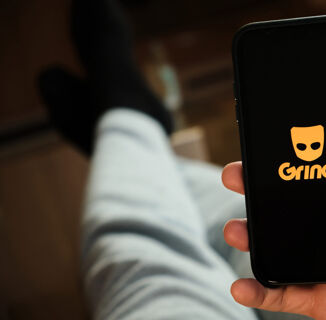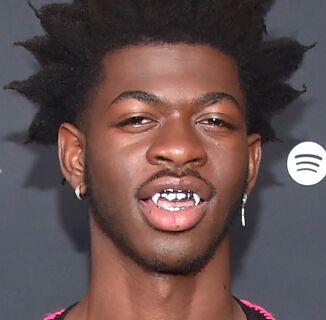Crystal Moselle’s Skate Kitchen has very little in common with Larry Clark’s Kids, yet almost every review of the new film draws parallels between the two. But the need to compare the features comes largely out of a longstanding assumption that most critics (largely men) can only consider a narrative about women in juxtaposition to something created by and starring men.
Sure, like Clark’s 1995 film, Skate Kitchen takes place in New York City, and employs a group of young non-actors to play roles that are close to their real-life personas. But skateboarding is much less of a focus for the boys in Kids than it is for the girls in Skate Kitchen — which is, incidentally, named after and based on the group who inspired the film in the first place. In Kids, a skateboard is most memorably used as a weapon; in Skate Kitchen, the boards are, as star Nina Moran once described them, broomsticks that allow her and her all-women collective to fly.
Moselle, best known for her award-winning documentary The Wolfpack, first happened upon Moran and Rachelle Vinberg on the G train in New York. She describes seeing them with skateboards and hearing Moran speaking (“so animated and charismatic”), and knowing immediately that she wanted to create a project with and about them. What came first was a short film sponsored by Miu Miu as part of their Women Tales series. “That One Day” starred Moran, Vinberg, and fellow Skate Kitchen members Ardelia Lovelace, Jules Lorenzo, Ajani Russell, Kabrina Adams, and Brenn Lorenzo in a story modeled on their daily existence. Cameras follow them skating together, ignoring misogyny and laughter from the male skaters while landing kickflips and other tricks they encourage each other to not give up on. Later, they party, dancing in a loud, dark apartment where they end the night laying around on top of one another, opening up about love and relationships, ultimately sharing their love for one another. It’s a naturalistic depiction of friendship — unforced, without an ounce of sap, and genuine.
Some of these same moments are a part of Skate Kitchen, the feature-length film Moselle premiered at Sundance this year. It was fitting venue for the film, as she credits the festival’s director of programming (and out lesbian) Kim Yutani for suggesting she turn away from the plan she had to make a full-length documentary.
“[She] hit me up after she saw the short and said, ‘I really want you to make this into a feature. This is a film I’ve always wanted to see,’” Moselle told Culture Trip. “I thought, ‘If she says that, maybe I have something here that I don’t realize.’ So we made the feature.”
Skate Kitchen is very much about skating — more so than Kids, to be sure, and on par with truly male-focused skating films like Catherine Hardwicke’s Lords of Dogtown — but it’s also about friendship, and finding your crew; your chosen family. Vinberg’s Camille is our way inside — she’s a burgeoning skater whose overbearing mom doesn’t appreciate her dangerous new hobby. Camille is shy and intimidated by the male-dominated sport, but when she meets Kurt (Moran) and the rest of the crew, she finds a validation and happiness she’s never had before. Unfortunately, things get complicated by her crush on one of her fellow Skate Kitchen friends’ ex-boyfriends, Devon (played by Jaden Smith, the “big name” of the film, and thus, the star-power that’s pushed most of the film’s marketing efforts). Her friendship with Devon threatens her relationship to the rest of the Kitchen, testing everyone’s loyalties and priorities.
Skate Kitchen is not only special in its depiction of how women skateboarders relate to one another, but also in its cast being largely women of color, and also, Moran’s Kurt being an out lesbian whose sexuality and subsequent relationships with women is never made an issue of, nor a point of discussion. Instead, she’s shown making out with girls and delivering quips like, “That girl just fingered me in the bushes, bro!” It’s worth noting, however, that Kurt is not a gross womanizer who sees women as sex objects, the role that butch characters serving as comic relief can often be shoehorned into. The way she speaks about her hookups to her friends is the same way they speak about theirs with men.
But Skate Kitchen definitely passes the Bechdel Test, probably because much of what was shot was improvised, and (what do you know!?) young women have a lot more to talk about than dudes. What’s most exciting about Moselle’s film is that it speaks to a new generation of young women, women of color, and queer women who will find they don’t need permission to skate or to talk about sex or to have relationships with other women that aren’t based on jealousy or one-upping each other even when they’re literally participating in a sport. And because the Skate Kitchen is a real, tangible crew, it’s an even bigger accomplishment.
“There’s something really special about female friendships, and their being there for each other,” Moselle told Culture Trip. “So many films have this ‘mean girl’ vibe where the underdog tries to make it with the popular group. To me that’s outdated, and it also reflects a society in which girls have to fight to get their way into these small spaces. What I love about the Skate Kitchen girls is that they constantly bring each other up, and bring new girls into the fold and bring them up, too. It’s a very positive inclusion which you don’t see a lot in other movies about girls.”
Outside of Skate Kitchen, LGBTQ women skaters like Lacey Baker, Lauren Mollica, Evelien Bouilliart, and Hillary Thompson lead the conversation in inclusion in the still quite macho pro skating community. San Francisco’s UNITY and L.A.’s Pave the Way are claiming space in the pools, parks, and half-pipes long thought to be Boys Only. But being able to see the magic of de-masculinizing skating on the big screen can’t be minimized, especially when the bonus is a story about creating community in a lonely world where being told how to be a good young woman often means ignoring your own happiness in order to please someone else.
Kids didn’t have that kind of message, and it certainly didn’t offer anything for young women to feel particularly good about.
“Kids is about a young boy who is giving HIV to a bunch of people,” Moselle told VICE. “It’s a day in the life, it’s sensational and it’s a great film, and it also shows the youth culture of that time. It’s not a skateboard movie. I understand it’s youth culture and youth culture is timeless. My film is about female empowerment—girls and femininity in a grimy world.”
Skate Kitchen is in theaters now.
Help make sure LGBTQ+ stories are being told...
We can't rely on mainstream media to tell our stories. That's why we don't lock our articles behind a paywall. Will you support our mission with a contribution today?
Cancel anytime · Proudly LGBTQ+ owned and operated
Read More in Culture
The Latest on INTO
Subscribe to get a twice-weekly dose of queer news, updates, and insights from the INTO team.
in Your Inbox














